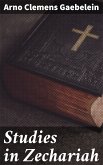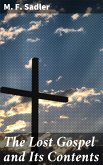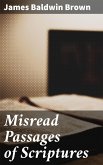In "Simon Magus," G. R. S. Mead delves into the rich tapestry of early Christian thought, exploring the figure of Simon Magus'Äîa complex character often vilified in ecclesiastical history. Mead adopts a sophisticated literary style that seamlessly blends historical narrative with philosophical inquiry, presenting Simon not merely as a heretic but as a pivotal figure whose Gnostic beliefs influenced the nascent Christian tradition. His analysis contextualizes Simon within the broader currents of late antiquity, weaving together myth, theology, and socio-political dynamics in an engaging manner that appeals to both scholars and general readers alike. G. R. S. Mead, a prominent scholar of Gnosticism and early Christianity, was deeply influenced by his academic background, particularly his interest in mysticism and esoteric traditions. His studies at such institutions as the University of Oxford under eminent thinkers of the time inspired him to seek a deeper understanding of spiritual philosophies. Mead'Äôs scholarly journey, marked by critical engagement with both religious texts and historical contexts, culminated in this astute study of Simon Magus, reflecting his commitment to uncovering the often overlooked figures of antiquity. "Simon Magus" is highly recommended for those interested in early Christianity, Gnosticism, and the complexities of spiritual identity. Mead'Äôs meticulous research and eloquent prose invite readers to rethink the narratives surrounding religious figures perceived as antagonists. This work serves not only as an academic resource but as a profound exploration of the mystical dimensions of faith, offering insights that remain relevant in contemporary theological discussions.
Dieser Download kann aus rechtlichen Gründen nur mit Rechnungsadresse in A, B, BG, CY, CZ, D, DK, EW, E, FIN, F, GR, H, IRL, I, LT, L, LR, M, NL, PL, P, R, S, SLO, SK ausgeliefert werden.









